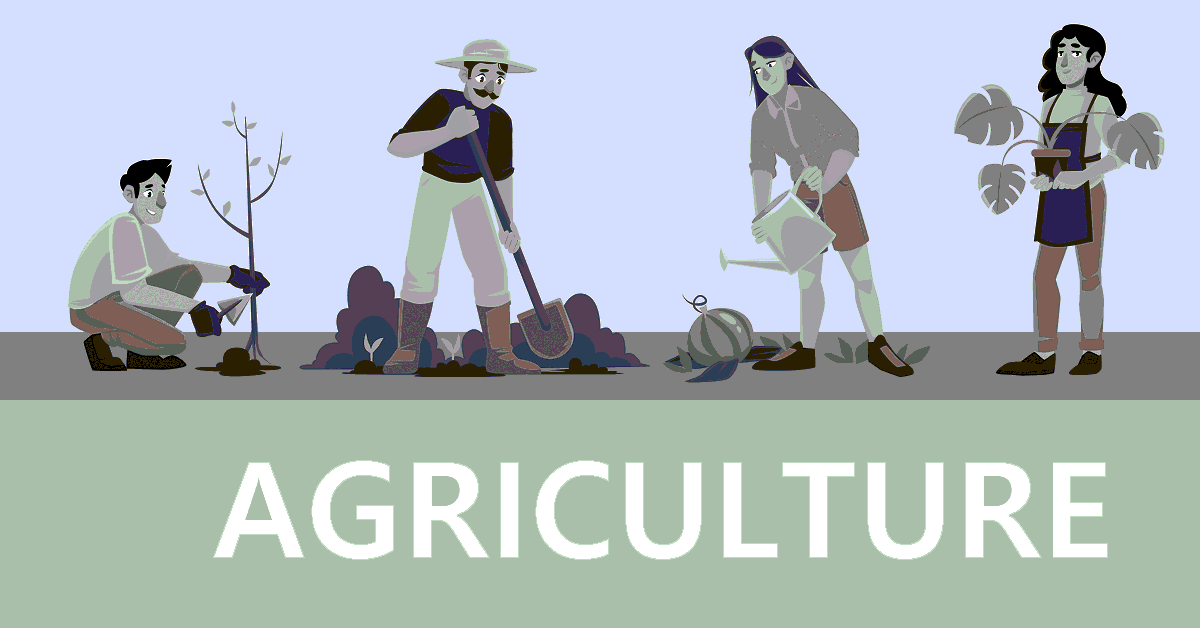
Agriculture and horticulture played a vital role in the development and prosperity of ancient Egyptian society. Over 90% of the population was involved in agricultural activities, mainly farming and livestock rearing. Agriculture was the backbone of ancient Egyptian society and the key to its prosperity. This article will provide an in-depth look at agriculture and horticulture in ancient Egypt, including the importance of agriculture to ancient Egyptian society, the role of the Nile River and irrigation systems, ancient Egyptian farming techniques, and the types of crops grown.
Agriculture and Horticulture in Ancient Egypt
Agriculture was an essential aspect of ancient Egyptian society, providing food, resources, and income for the population. The fertile land along the Nile River provided ideal conditions for agriculture and horticulture. The Nile's yearly flooding deposited fertile silt on the land, making it fertile and fertile for crops to grow.
Importance of Agriculture and Horticulture to Ancient Egyptian Society
Agriculture was not only crucial for the sustenance of the ancient Egyptian population but also played a significant role in the economy and culture of the society. The abundance of crops and food allowed for the growth of cities and the development of trade and commerce. Agriculture was also closely tied to religion, with the gods of agriculture being worshipped and offerings made to ensure a bountiful harvest.
Role of the Nile River and Irrigation Systems
The Nile River was central to the agriculture and horticulture of ancient Egypt. The yearly flooding of the Nile deposited fertile silt on the land, making it ideal for crops to grow. The ancient Egyptians also developed sophisticated irrigation systems, including the use of canals, dikes, and basins, to control the flow of water and prevent flooding. These systems allowed for year-round agriculture and allowed for the growth of crops even in dry areas.
Ancient Egyptian Farming Techniques and Tools
The ancient Egyptians used simple but effective tools for agriculture and horticulture. The shaduf, a device used to lift water from the Nile, was used for irrigation. The plow, made of wood and metal, was used to cultivate the soil. Hand tools, such as hoes and sickles, were used to plant and harvest crops. Livestock, including cows, sheep, and goats, were also used to help with agriculture and horticulture.
Types of Crops Grown and Their Significance
The ancient Egyptians grew a variety of crops, including wheat, barley, flax, and vegetables. Wheat and barley were staple crops and were used to make bread and beer, respectively. Flax was used for linen production, and vegetables were grown for food. Horticulture was also an important aspect of ancient Egyptian agriculture, with fruit trees, such as figs and dates, being grown in orchards.
Impact of Agriculture on the Economy and Culture of Ancient Egypt
Agriculture had a significant impact on the economy and culture of ancient Egypt. The abundance of crops and food allowed for the growth of cities and the development of trade and commerce. Agriculture was also closely tied to religion, with the gods of agriculture being worshipped and offerings made to ensure a bountiful harvest.
Conclusion
In conclusion, agriculture and horticulture were central to the development and prosperity of ancient Egyptian society. The Nile River and irrigation systems allowed for year-round agriculture and allowed for the growth of crops even in dry areas. The ancient Egyptians used simple but effective tools and techniques for agriculture and horticulture, growing a variety of crops, including wheat, barley, flax, and vegetables. Agriculture had a profound impact on the economy, religion, and culture of ancient Egypt, as seen in the case studies of the role of the Nile River and the use of irrigation systems. Ancient Egyptian agriculture set the foundation for the civilizations that followed, and its legacy can still be seen today.
In the present day, agriculture and horticulture continue to play a crucial role in societies around the world, and it is fascinating to study the practices and techniques of our ancestors. The study of ancient Egyptian agriculture and horticulture provides valuable insights into the history of human civilization and the evolution of farming and food production. Whether you are a student of history, geography, or simply someone with a passion for ancient civilizations, understanding the role of agriculture and horticulture in ancient Egypt is a valuable and informative journey.
Agricultural Science

